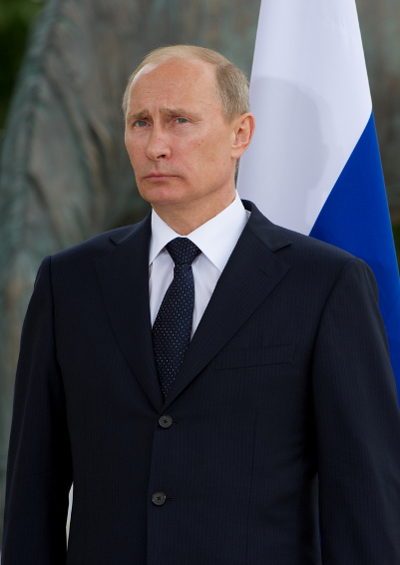Czar Vladimir (Putin)
Putin rules like a Czar, deeply conservative, fearful of unrest, placing stability above all else.
March 17, 2018

In August 1991, reporter David Remnick stood in the crowd outside the Russian parliament when Boris Yeltsin mounted a tank to denounce an attempted coup that would have brought back communism. On that day, as Remnick writes in his 1994 book Lenin’s Tomb, “Muscovites were prepared to die for democratic principles.”
Twenty-seven years later, democratic principles are in short supply. Russians vote for president on March 18th in an election that is neither free nor fair. The incumbent president controls his nation’s media and the judiciary and Putin’s main rival Alexei Navalny has been kept off the ballot.
And yet, there is at least an element of democracy in the election. Voters have choices as seven candidates are challenging Putin. They range from a millionaire communist to a former television personality. The election is a barometer of voter sentiment and Putin’s popularity. Will he get his desired 70% majority and 70% turnout?
Reshaping Russian politics
During his 18 years in power, the now 65-year-old Putin has reshaped Russian politics. He is corrupt and dictatorial, but no longer a communist. Asked last October his opinion of the approaching 100th anniversary of the communist revolution, Putin through a spokesman caustically replied, “what is there to celebrate?”
During communist times, you could go to jail for such a remark. The anniversary of the great October revolution was for decades the biggest holiday in Russia. Yeltsin broadened the observance to the Day of Accord and Reconciliation. Putin cancelled it altogether in 2004.
In his desire for Russia to be taken seriously and be a major player on the global stage, Putin simply ignores the communist past. “Russia,” he says, “did not begin either in 1917 or in 1991. We have a single, uninterrupted history spanning over a thousand years.” It is a message that resonates well across Russia.
Dashed hopes
In the critical first decade of post-communism, hopes were high that democracy and the rule of law would take hold. Alas, it was not to be. Russia’s empire in Eastern Europe gone and its global influence diminished, the long-suffering Russian people now endured a disastrous inflation that wiped out their meagre savings.
Then, there was a criminalized privatization of state assets that Yeltsin was too weak to control. It did not help that Western assistance in building democracy and a market economy failed.
When former KGB agent Putin succeeded Yeltsin at the dawn of the millennium, Russians craved the stability the new strong man willingly provided.
Russian living standards
Nearly 20 years ago, Vladimir Putin expressed the hope that with steady economic growth Russian living standards might match those of Portugal within 15 years. It was extraordinary that super power Russia would compare itself to Western Europe’s poorest country. But it was also a bold confession of how low Russian living standards actually were.
Putin’s goal was not achieved. According to World Bank figures at the end of 2017, Russia’s per capita incomes were $6,500 compared to $21,000 in Portugal.
Prosperity in Russia did rise during the oil boom from 2004 to 2008, but fell back in subsequent years when the oil price weakened. Russia’s economy is dependent on oil, gas and other commodities. Its economic growth has been further hampered by the sanctions imposed in 2014 following Putin’s annexation of Crimea.
Overall, Russia has made only halting advances in the nearly three decades since communism ended. But Vladimir Putin is a popular leader. His approval rating soared after the annexation of Crimea, which most Russians regard as part of Russia.
But then again, Russians have long been prey to their rulers’ imperial designs substituting for any tangible – and oft-promised – improvements in their living standards.
Putin rules like a Czar, deeply conservative, fearful of unrest, placing stability above all else.
Takeaways
In August 1991, Muscovites were prepared to die for democratic principles. Today, democratic principles are in short supply.
Putin rules like a Czar, deeply conservative, fearful of unrest, placing stability above all else.
20 years ago, Putin expressed the hope that Russian living standards might match those of Portugal within 15 years. Putin’s goal was not achieved.
According to World Bank figures at the end of 2017, Russia’s per capita incomes were $6,500 compared to $21,000 in Portugal.